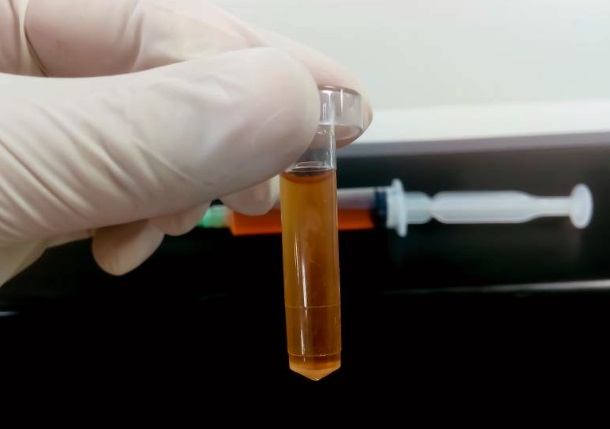New Study Finds That COVID-19 Causes Deadly Protein Shifts in Cerebrospinal Fluid
Nikhil Prasad Fact checked by:Thailand Medical News Team Jul 02, 2025 7 months, 1 week, 4 days, 19 hours, 57 minutes ago
Medical News: Disturbing Discovery About COVID-19 and the Brain
A new study by researchers from the Keizo Asami Institute and the Federal University of Pernambuco in Brazil has uncovered disturbing insights into how COVID-19 may be damaging the brain. By analyzing cerebrospinal fluid (CSF) from infected patients, scientists found severe disruptions in key proteins linked to brain inflammation, immune dysfunction, and oxidative stress. This
Medical News report sheds light on the subtle but potentially long-lasting neurological consequences of SARS-CoV-2, even in the absence of direct viral invasion of the brain.
 New Study Finds That COVID-19 Causes Deadly Protein Shifts in Cerebrospinal Fluid
What the Scientists Did and Found
New Study Finds That COVID-19 Causes Deadly Protein Shifts in Cerebrospinal Fluid
What the Scientists Did and Found
The research team, which included experts Juliana Ramos de Andrade, Josivan Barbosa de Farias, Maria Luiza de Lima Vitorino, Fernando Tenório Travassos, Roberto Afonso da Silva, José Luiz de Lima Filho, and Marcelo Moraes Valença, analyzed CSF samples from 11 COVID-19 patients and 5 uninfected controls. Using high-resolution liquid chromatography-tandem mass spectrometry, they identified 203 unique proteins—76 of which were significantly altered in those with COVID-19.
Of the 76 differentially expressed proteins, 45 were elevated, including several involved in blood clotting such as fibrinogen alpha and beta chains and prothrombin. Immune system components were also upregulated, particularly immunoglobulin chains and complement proteins like C1R, C4A, C9, and CFI—all known to trigger inflammation and damage the blood-brain barrier.
Troubling Signs of Brain Stress and Immune Overdrive
The presence of these proteins suggests an ongoing immune war inside the central nervous system (CNS). The study noted a marked increase in proteins that reflect neuroinflammation and hypercoagulation—both known contributors to stroke risk and brain injury. Additionally, a protein called lipopolysaccharide-binding protein (LBP), linked to stress, mood disturbances, and neurotransmitter imbalance, was found at high levels. LBP can interfere with the brain’s ability to produce serotonin and dopamine—two chemicals essential for mood and cognition—hinting at why some COVID-19 patients struggle with brain fog or depression.
Loss of Natural Brain Protection Mechanisms
Even more alarming was the dramatic decline in key protective proteins like extracellular superoxide dismutase (SOD3), which defends against oxidative stress. A decrease in this antioxidant enzyme can leave brain cells vulnerable to damage. Proteins that support healthy neurons and connections, such as neural cell adhesion molecule 1 (NCAM1), were also found to be significantly reduced.
This imbalance—high inflammation and coagulation with low antioxidant and repair proteins—paints a picture of a brain under siege from within, not by the virus itself, but by the body's overreaction to it.
W
ider Implications and Future Directions
The researchers emphasized that while they did not detect SARS-CoV-2 RNA in the CSF, the dramatic changes in protein expression clearly indicate that COVID-19 can cause significant neurological changes without directly infecting the brain. Their work underscores the importance of monitoring neurological symptoms even after patients have recovered from the acute phase of the illness.
The team also found strong interactions between many of these proteins, forming clusters that suggest a coordinated breakdown in protective systems and heightened immune activation. For instance, fibrinogen and prothrombin were shown to interact with clot-stabilizing proteins, forming dangerous networks that may cause microclots and restrict blood flow to the brain.
Conclusion
This study reveals that even without direct viral presence in the brain, COVID-19 triggers powerful immune and inflammatory responses within the central nervous system. These responses may damage neurons, disrupt blood flow, and reduce the brain’s ability to repair itself—potentially contributing to long-term symptoms seen in Long COVID. The identification of these proteins could eventually help doctors diagnose and treat post-COVID neurological issues more effectively. These findings call for urgent, ongoing research into how COVID-19 silently affects the brain, even after initial recovery.
The study findings were published in the peer reviewed journal: ACS Omega
https://pubs.acs.org/doi/10.1021/acsomega.5c00707
For the latest COVID-19 News, keep on logging to Thailand
Medical News.
Read Also:
https://www.thailandmedical.news/news/study-shockingly-finds-that-the-nucleocapsid-protein-of-the-covid-19-virus-triggers-brain-cell-aging
https://www.thailandmedical.news/news/scientists-raise-alarms-after-discovering-that-covid-19-can-cause-cytotoxic-brain-lesions-in-the-corpus-callosum
https://www.thailandmedical.news/news/university-of-connecticut-study-warns-that-long-covid-is-quietly-damaging-the-brain-and-mental-health-of-thousands
https://www.thailandmedical.news/articles/coronavirus
